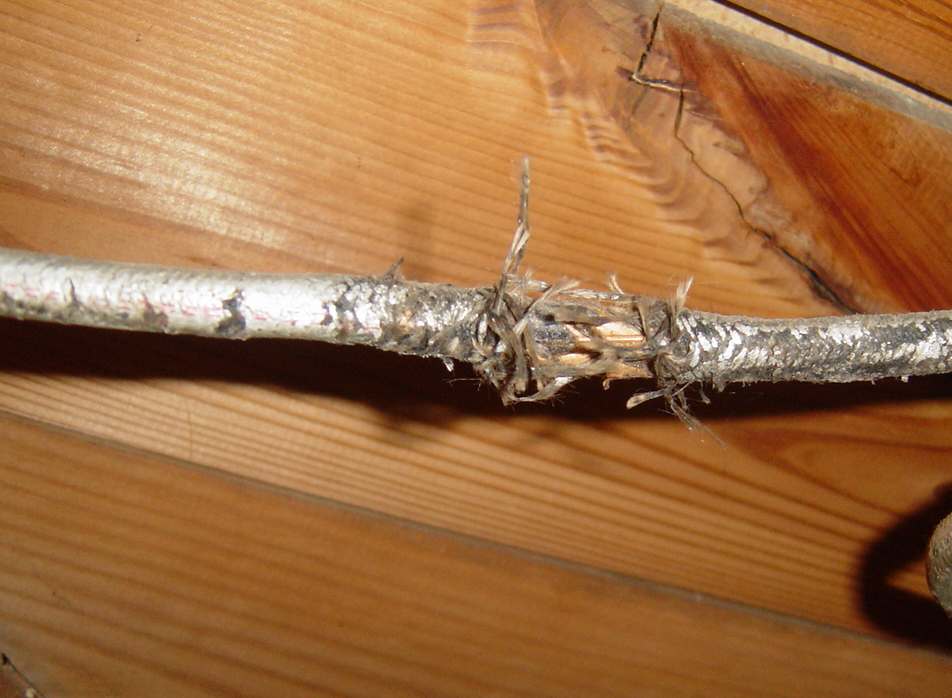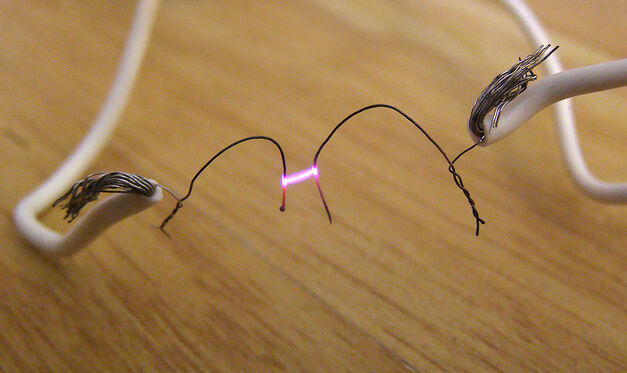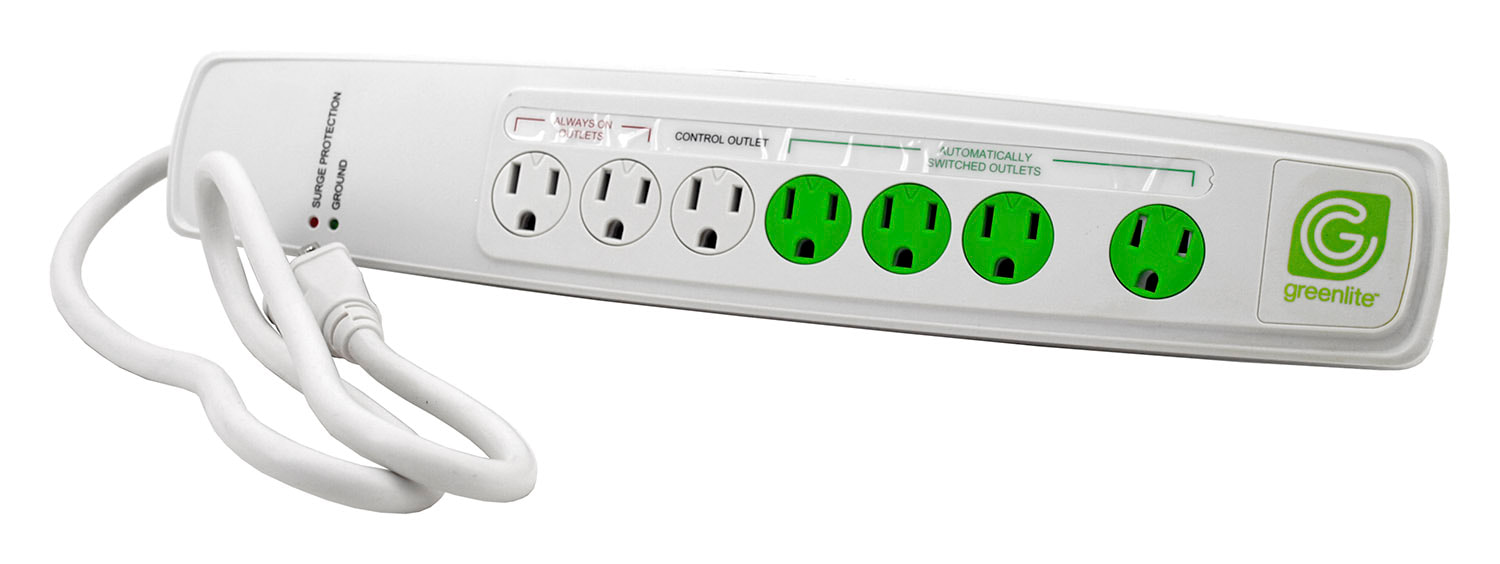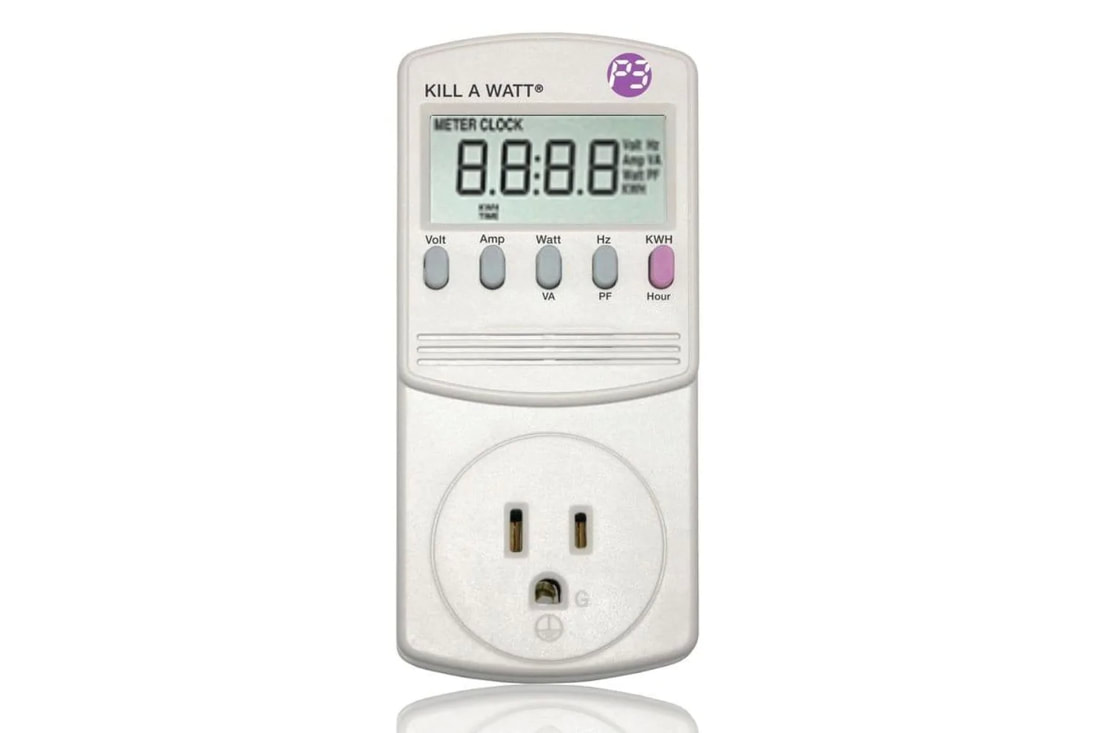|
Is my home "leaking" electricity? We sometimes get questions from people who believe their home is "leaking" electricity. Of course, usage of electricity is normal. "Leakage" could be defined by the abnormal or unwanted usage of electricity. This article intends to serve as an introduction to a rather complex topic. In most cases you will want to consult an electrician if you suspect electrical leakage. Leakage Current to Ground On any electrical circuit, some current will escape the circuit and flow to ground. For example, a small amount of current will flow through the insulation on the conductors. Leakage current can cause unnecessary tripping on GFCI-protected circuits. Old wiring, failed insulation and other causes can contribute to higher leakage current levels. If all devices on a circuit are turned off or unplugged, there should be no electricity used. Similarly if the main circuit breaker for a home is turned off the electric meter should not spin. These would be indicators of problematic leakage and should be investigated by an electrician. Electrical Arcing Electrical arcing is a potentially dangerous situation caused by loose connections, missing insulation on wires, etc. The problem can be in the home's wiring or in a faulty device. Arc fault circuit breakers can detect current leakage through arcs. This type of leakage can be a safety hazard. Voltage Drop Voltage drop happens when voltage is lost through the circuit, resulting in lower voltage at the end of the run. Voltage is lost when cables are too long or too small to handle the electrical current load. Too much voltage drop can cause devices to not work properly, like flickering lights or weak motors. This can lead to premature equipment failure and hazardous situations. Under normal circumstance, the lower voltage also results in a correspondingly higher current draw. Thus, the same device positioned near the electric panel will cost less to operate than if a long extension cord is used. For the most people, this loss is so small it is just not worth worrying about. Phantom Power "Phantom" or "vampire" power is used by many electronics. Expecting a remote control to turn on your TV requires constant power to be fed to the TV. Indicator lights use power even when a device is off. This type of electrical usage is sometimes considered leakage. It can be somewhat controlled by the homeowner. One good way is the usage of smart power strips, which completely shuts off power to unused devices. There are a few different types and there is a nice description here: https://www.nrel.gov/docs/fy14osti/60461.pdf. Faulty Device A device could use more amperage than expected. Older devices may build up resistance in the wiring which causes greater electric usage. Unless the device has a large draw (large motor, air conditioner, water heater, refrigerator, etc.), this may not be worth your attention. These can be checked using a device like Kill A Watt meter. Usage Factors Anyone who steps back to take a look at the bigger picture will notice that electrical usage has been dramatically increased through the years. The average U.S. home in 1950 was 1000 SF. Now we are building single-family homes in excess of 2300 SF. This more than doubling of home size comes with a consequent increase in electrical usage.
While a large modern television uses more power than older CRT tube TVs, we now have many TVs instead of just one. The 1950s TV used no power when turned off. The same was true of stereos and radios. The "modern" home may have 40-50 electronic devices. Many devices are using constant phantom power and others, routers for example, are left on at all times. The average home also uses more lighting electricity. LEDs use perhaps 10% of the electricity that incandescent bulbs did. But now we regularly leave lights on when we leave the room. It is not uncommon to find homes where the owners leave lights on at night and when not at home. In short, while we used to light the room we were in, we are now leaving lights on for convenience. So perhaps this is food for thought for some of us.
0 Comments
|
Archives
August 2023
Categories |
© 2015-2022 - Energy Auditors, LLC - All Rights Reserved (717) 914-8155 - [email protected] - Dillsburg, PA





 RSS Feed
RSS Feed





